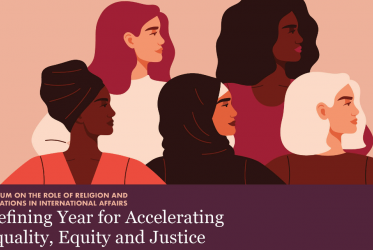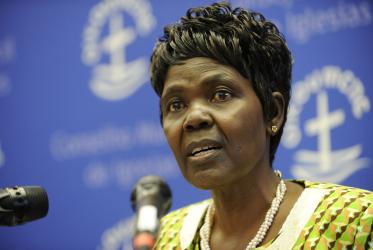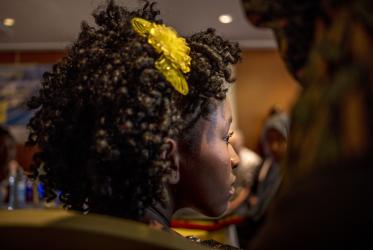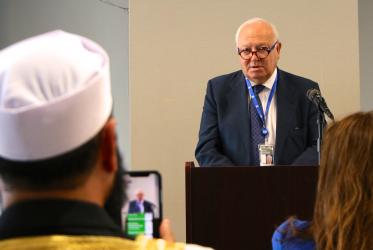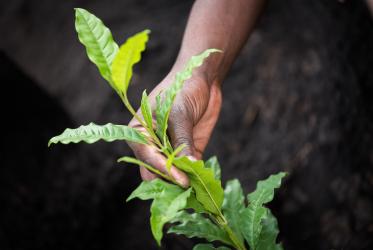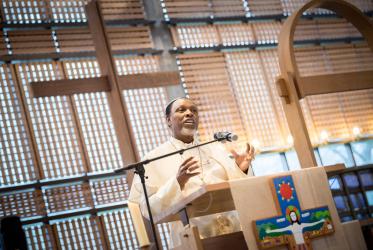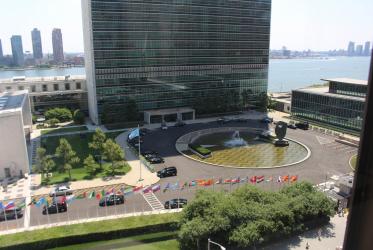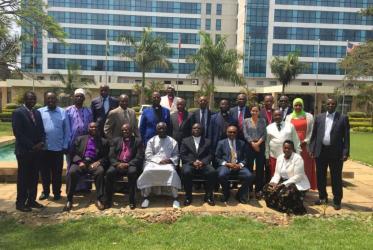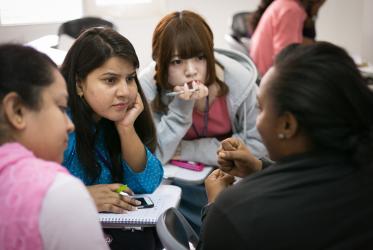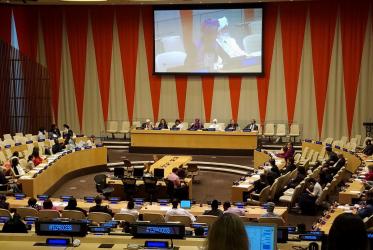Displaying 21 - 40 of 90
South Sudan Church leaders welcome new cabinet
15 March 2020
Worshipping safely: UN, faith communities unite to prevent violence
20 September 2019
WCC to co-host public event on migration and displacement at UN
17 January 2018
African women embark on pilgrimage in Burundi
29 November 2017
Women in development create space for hope in Egypt
15 June 2017
New ACT general secretary envisions more prophetic diakonia
22 February 2017
Churches in Norway and Pakistan break new ecumenical ground
26 January 2017
In Ghana, women bring open minds, honest words
05 July 2016
